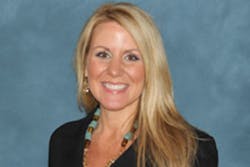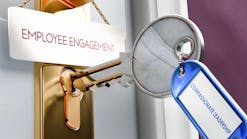Whether you’re a veteran Central Service (CS) manager or technician, or a relatively new team member of the department, effective mentorship and peer feedback can offer numerous benefits. Unfortunately, it’s a gift that many professionals don’t always give freely, for various reasons.
Some may keep their knowledge close to the vest out of fear that transferring skills and knowledge to another team member could lead to the mentor’s eventual replacement. Some may also believe that they lack information and knowledge that could benefit others on the team – or assume that an attempt to mentor another individual may not be met with acceptance or gratitude. Whatever the case, when conducted correctly, mentorship is worth its weight in gold – not just for the professionals involved, but also for the collective department and healthcare facility, as a whole.
Damien Berg
It’s a powerful message that was shared with attendees during the 2016 IAHCSMM Annual Conference. Industry experts Rose Seavey, Mark Duro, David Jagrosse and Damien Berg served as panel presenters for an educational session on peer feedback how thoughtful mentorship helped boost their professionalism and careers, and give them the knowledge and confidence to then share their insights with others. They encouraged attendees to actively engage in mentorship opportunities to facilitate personal and peer growth, and advance the CS profession.
“Sterile processing is a career, not just a job. When you choose a career and want to advance or better yourself, it’s important to seek coaching and mentoring,” said Seavey, MBA, BS, RN, CNOR, CRCST, CSPDT, President and CEO of Seavey Healthcare Consulting.
Embracing opportunities
The session panelists agreed that peer feedback, mentoring and coaching is an ideal way to help one another grow within the CS discipline.
Jagrosse, CRCST, CHL, CS Manager at Middlesex Hospital in Middletown, Conn., emphasized the importance of sincerity to motivate mentorees and lead them to broaden their knowledge and skill sets. Duro, CRCST, FCS, Director of Sterile Processing at New England Baptist Hospital in Boston, encouraged mentors and those delivering peer feedback to do so “in the moment,” whenever a teaching moment arises, but, ideally, to do so privately when constructive criticism is involved.
Managers and supervisors should make an effort to stay in tune with their technicians’ career interests and professional goals, so they can help groom them for advancement and potential new roles and responsibilities. If a technician has shown an interest in leadership, they may be ripe for mentorship to help them transition to a lead technician role, for example, or perhaps even toward a future supervisory or management position. While it’s true that not every employee will be receptive to mentorship, there are signs managers can look for to aid their quest. “Look for someone who goes the extra mile and does a little more during their shift,” Duro said, adding that good mentoree candidates may also be natural peer leaders who are eager to readily lend a hand to their coworkers or learn a new skill.
Although face-to-face mentoring is invaluable, it’s not the only effective option. As Berg, BA, BS, CRCST, explained, effective peer feedback can also occur via text, phone or email – and also at chapter meetings and educational conferences, such as those offered by IAHCSMM and the Association for the Advancement of Medical Instrumentation (AAMI). He also encouraged CS professionals to open their doors to peers working in other regional facilities, so they can share best practices that can promote patient safety.
Pursuit of ongoing education
Effective mentoring may even serve to promote certification and ongoing education. As Jagrosse pointed out, educating peers on the merits of certification and continuing education can go a long way toward driving quality in the department, while also promoting professionalism and critical knowledge growth.
However mentorship and peer feedback is delivered, its success will hinge on effective follow through and a commitment to clearly-outlined goals. Above all, it’s essential that even CS veterans and longstanding mentorees recognize that they, too, can benefit from peer mentorship and continued growth. It’s a point rooted in the fact that the CS profession is ever-evolving and CS professionals must continue to learn and grow to keep up with advancements and changes to technology and standards.
“Sometimes, we don’t know what we don’t know,” reminded Seavey. “We need to encourage people – even those who have been working in the profession for many years – to keep learning, growing and networking. We are all in this together.”










